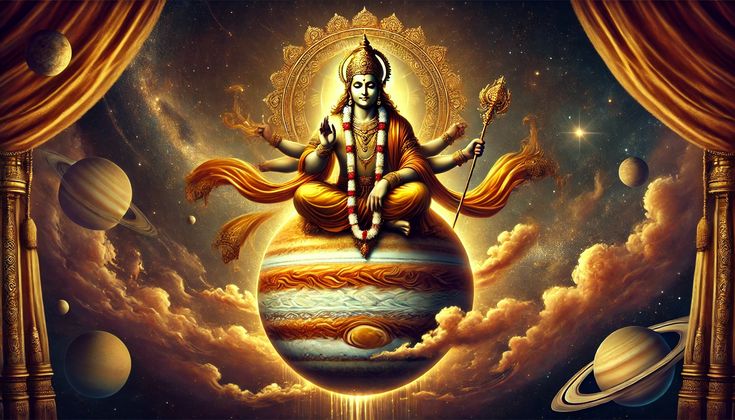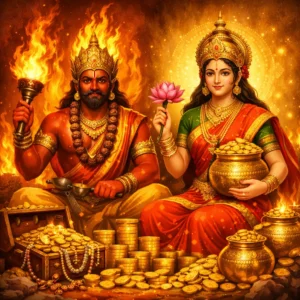“In the silence of the candlelit room, I saw him—my shadow, standing apart from me. He smiled.”
Deep within the folds of forbidden Tantra lies a path rarely spoken of aloud—a path that challenges identity, unearths the subconscious, and beckons the practitioner to face the most terrifying adversary of all: himself. This path is called Hamzaad Sadhana, and its ultimate goal is to awaken the Chhaya Puruṣh—the Mirror Man, the spectral twin that shares your face, your voice, and sometimes… your destiny.
But this ancient concept of a “shadow self” is not new. Its origin goes back to the gods themselves—to Surya, the sun deity, and the tale of his shadow wife, Chhāyā, and their enigmatic son—Shani, the planet Saturn.
The Divine Shadow: Surya, Sanjana, and Chhaya

In Vedic mythology, Surya Deva, the resplendent sun god, was wedded to Sanjana, the daughter of Vishwakarma, the divine architect. However, Sanjana, though devoted, found it increasingly unbearable to live under Surya’s intense heat and brilliance. Her body was scorched. Her vision blurred. She began to fade—spiritually and emotionally.
Unable to endure it, Sanjana secretly left Surya, going to earth to live in a forest in the guise of a mare and meditate. But she did not leave without a substitute. She created a shadow-double of herself, a feminine energy known as Chhaya, and left her in her place as Surya’s wife.
Chhaya was dutiful and silent—obedient in ways Sanjana had never been. Surya, unaware of the deception, continued his life with Chhaya and eventually fathered a child with her—Shani, the god Saturn.
But Shani was no ordinary child.
Born of shadow, his gaze had the power to paralyze. His presence could dull even Surya’s brightness. Surya began to sense something different, something otherworldly. He questioned Chhaya, and the truth unraveled.
When Surya learned that he had lived with a shadow, a reflection rather than the real wife, he was consumed by rage. Some legends say he tried to cast Chhaya out; others say she remained in the solar mandala, giving birth to other grahas (planets) and standing as a symbol of subtle power and karmic justice.
Shani, child of Chhaya, grew to embody this karmic principle—the unseen forces, the consequences of action, and the weight of the invisible twin that lives within all of us.
Symbolism in Hamzaad Sadhana
The story of Chhāyā and Surya is not merely a myth but a powerful archetype reflecting the deeper truths of Hamzaad Sādhana.
- Just as Sanjana created Chhaya, the sādhak creates his Chhaya Puruṣh—a shadow-self to act in his stead.
- Just as Surya was deceived, so too can a sādhak become overpowered or replaced by his own creation.
- And just as Shani, born from this divine shadow, became a force of cosmic justice, the Hamzaad too can become a being of will and consequence, often revealing hidden karmas, subconscious fears, or suppressed power.
Thus, the tale serves as a divine warning: shadow is not lesser than light. It is the other half of truth. It carries the unseen burdens and the untamed potential.
Only those who walk with clarity, courage, and consciousness can summon their Chhaya—and survive.
From Myth to Mirror
The Hamzaad Sadhana is not an invention of mystics—it is a continuation of cosmic narrative. The myth of Chhaya is a reminder that even gods are not exempt from the dilemmas of identity, illusion, and karmic confrontation.
“The bravest act is not to face the world, but to stand before your own shadow—and not tremble.”
— Acharya Sailyajit











